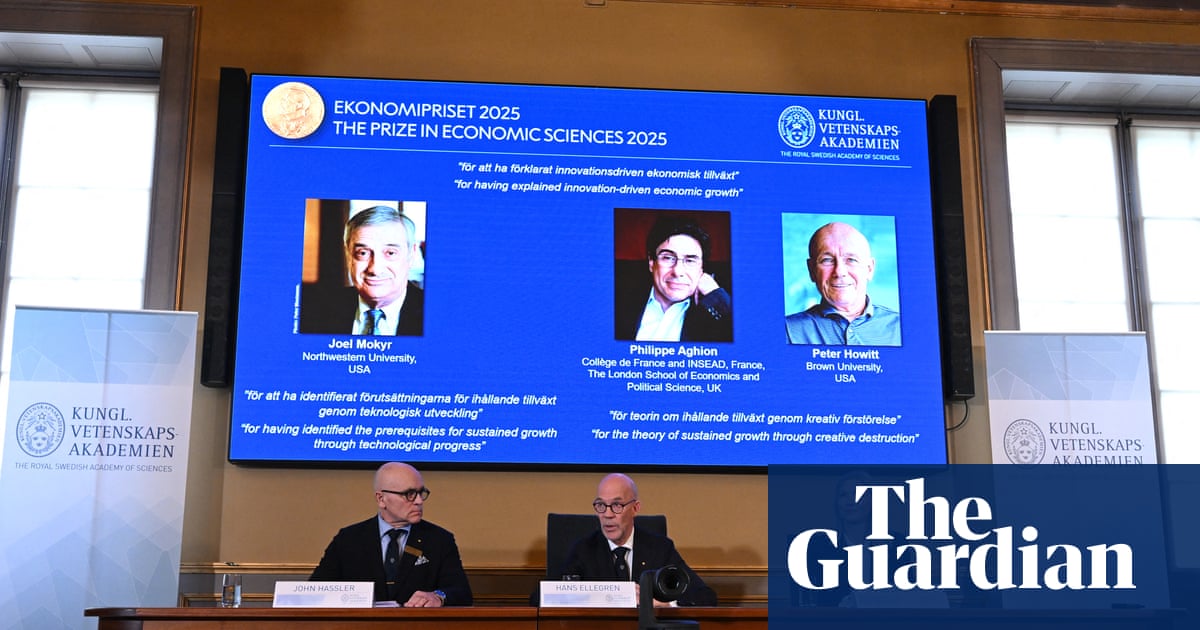
"Three experts in the power of technology to drive economic growth have been awarded this year's Nobel prize in economics. Joel Mokyr of Northwestern University secured half of the 11m Swedish kronor (867,000) prize, with the rest split between two other academics: Philippe Aghion of the College de France, Insead business school and the London School of Economics; and Peter Howitt of Brown University."
"Announcing the prize against a backdrop of rapid development in artificial intelligence and fierce debate over its impact on society and living standards, the Royal Swedish Academy of Sciences said the trio had pioneered the explanation of innovation-driven economic growth. The award came as countries worldwide push to turn around years of lacklustre economic growth since the 2008 financial crisis, amid concerns over a slowdown in productivity gains, sluggish progress on raising living standards, and mounting political tensions. Aghion, a French economist, warned that dark clouds were gathering amid increasing barriers to trade and openness fuelled by Donald Trump's trade wars. He also said innovation in green industries, and blocking the rise of giant tech monopolies would be vital to stronger growth in future."
Three economists received the Nobel prize for pioneering explanations of innovation-driven economic growth. Technological developments powered sustained economic growth over the past two centuries, but future gains cannot be taken for granted. Economic growth has slowed since the 2008 financial crisis amid weak productivity, stagnant living standards, and mounting political tensions. Rising protectionism and trade barriers threaten world growth and innovation. Artificial intelligence offers substantial growth potential. Concentration in giant tech firms risks inhibiting entry by new innovators. Strong competition policy and innovation in green industries are essential to secure future growth and prevent dominant firms from stifling innovation.
Read at www.theguardian.com
Unable to calculate read time
Collection
[
|
...
]